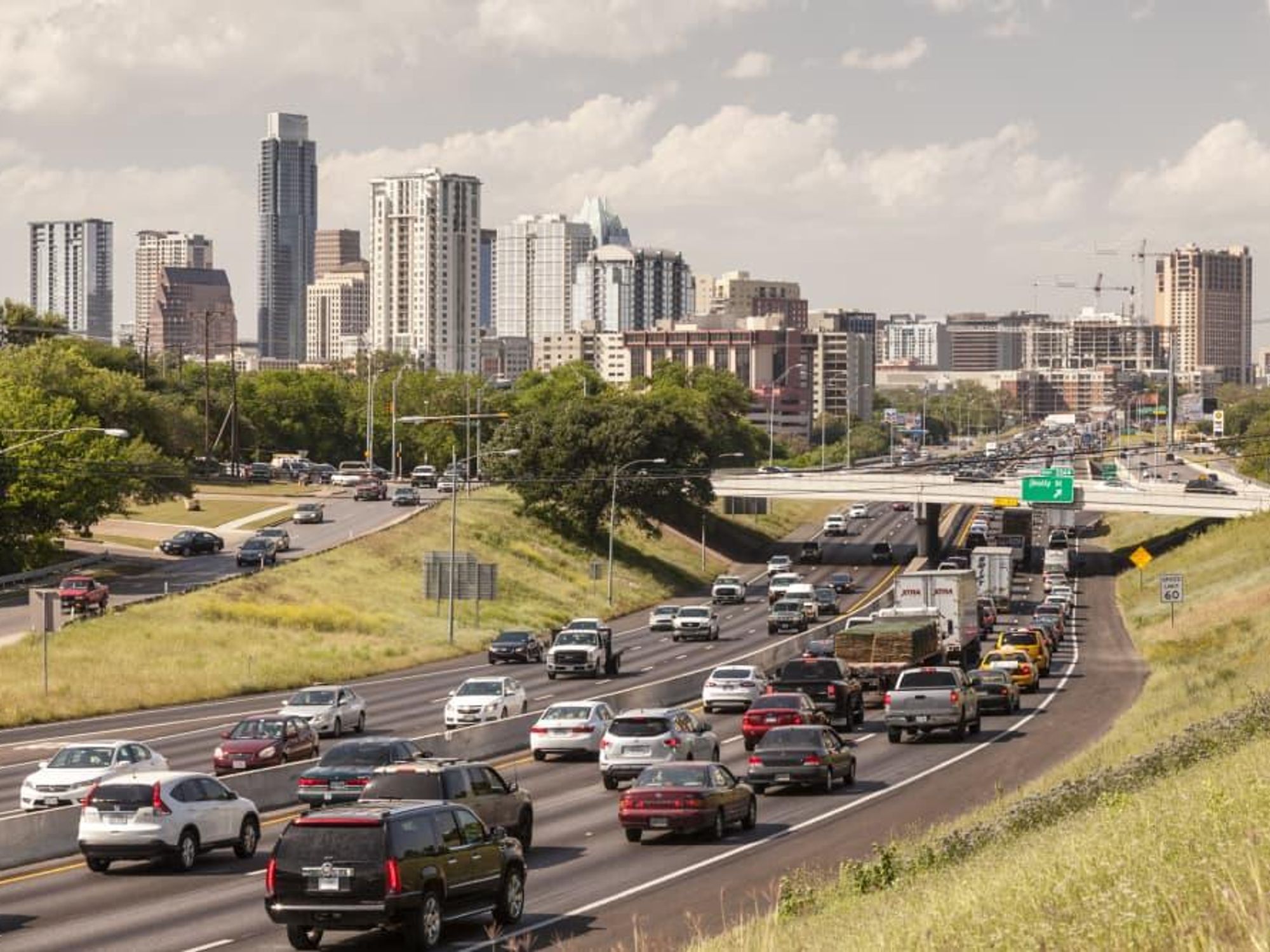DALLAS (AP) — State Rep. James Talarico bested Congresswoman Jasmine Crockett in an expensive and fiercely contested Texas Senate Democratic primary that once again has the party dreaming of a big upset in November.
Who Talarico will face depends on a May runoff between longtime Republican Sen. John Cornyn and MAGA favorite Ken Paxton — a race expected to get increasingly nasty over coming months and could hinge on whether or not President Donald Trump offers an endorsement.
Texas, along with North Carolina and Arkansas, on Tuesday, March 3 kicked off midterm elections with control of Congress at stake and against the backdrop of the U.S.-Israeli war with Iran.
No Democrat has won a statewide race in the reliably Republican state in over 30 years, but in a statement after his victory, Talarico proclaimed “We're about to take back Texas.”
Crockett’s campaign said she planned to sue over voting issues in Dallas and she spoke only briefly on Tuesday night to warn that “people have been disenfranchised."
Republicans head to round 2
Cornyn, meanwhile, is seeking a fifth term but is facing a tough challenge from Paxton, the state attorney general. Cornyn hopes to avoid becoming the first Republican senator in Texas history to seek re-election and not be renominated.
The GOP contest also featured U.S. Rep. Wesley Hunt, who finished a distant third and conceded. But him making it a three-way race made it tougher for any candidate to reach the 50 percent vote threshold needed to win the nomination outright and avoid the May 26 runoff.
All three campaigned on their ties to Trump, who did not make an endorsement in the race. Now both Cornyn and Paxton will again fiercely compete to curry the president's favor.
Cornyn was facing a tough enough battle that he didn't hold an election night party. Instead, in comments to reporters in Austin, he sought to make the case that a runoff win by Paxton would leave “a dead weight at the top of the ticket for Republicans.”
“I’ve worked for decades to build the Republican Party, both here in Texas and nationally,” Cornyn said. “I refuse to allow a flawed, self-centered and shameless candidate like Ken Paxton to risk everything we’ve worked so hard to build over these many years.”
Addressing supporters in Dallas, Paxton pointed out that he had recently taken a trip to Mar-a-Lago, Trump’s Florida estate. He also proclaimed: “We proved something they’ll never understand in Washington.”
“Texas is not for sale,” he said.
Cornyn’s cool relationship with Trump is part of what made him vulnerable. He and allied groups spent at least $64 million in television advertising alone since July to try stabilize his support.
Paxton, who began campaigning in earnest only last month, has made national headlines for filing lawsuits against Democratic initiatives. He remained popular in Texas despite a 2023 impeachment trial on corruption charges, of which he was acquitted, and accusations of marital infidelity by his wife.
Senate GOP leaders, who are backing Cornyn, worry that Paxton’s liabilities would make it harder to defend the seat if he is the nominee — and require significant spending that could be better used elsewhere.
Confusion at some polling places
In the Democratic campaign, Crockett and Talarico each argued that they would be the stronger general election candidate in a state that backed Trump by almost 14 percentage points in 2024.
Voting was extended in Dallas County and Williamson County, outside Austin, after voters reported being turned away and directed to different voting precincts because of new primary rules. Paxton’s office later challenged a decision keeping the polls open longer, and the state Supreme Court ruled that ballots cast by people not in line by 7 pm should be separated from others.
It was not immediately clear how the court’s action would be carried out or how many eligible ballots remained to be counted in Dallas County, Crockett’s home base. Crockett said she would seek legal action after voting was concluded.
And in Harris County, which includes Houston, a spokesperson said that as of 10 pm there were still voters at 20 centers.
Democratic race featured clash of styles
Crockett and Talarico waged a spirited race as Democrats look for their first Senate win in Texas since 1988.
Crockett has built a national profile for zinger attacks on Republicans and focused on turning out Black voters in the Dallas and Houston areas. Talarico, a seminarian who often references the Bible, held rallies across the state, including in heavily Republican areas.
“We are not just trying to win an election," a jubilant Talarico told supporters in Austin before the race was called. “ We are trying to fundamentally change our politics. And it’s working.”
Dallas voter Tanu Sani said she cast her ballot for Talarico because he “really spoke to me in the way he tries to unify.”
Tomas Sanchez, a voter in Dallas County, said he supported Crockett because “she cares about immigrants, she cares about the American people in a way that a lot of the Republicans have proven they haven’t.”
Talarico outspent Crockett on television advertising by more than four to one as of late February. He got a burst of attention — and campaign contributions — last month from CBS' decision not to air his interview with late-night host Stephen Colbert, who said the network pulled the interview for fear of angering Trump's FCC.
Other key primaries
Texas’ races also featured new congressional district boundaries that GOP lawmakers — urged on by Trump — redrew to help elect more Republicans. The result matched several Democratic incumbents in primary fights and set up new general election battlegrounds.
Republican former Rep. Mayra Flores was attempting a comeback but was defeated by Eric Flores, a lawyer endorsed by Trump, for the nomination to run against Democratic Rep. Vicente Gonzalez. Mayra Flores made history in a 2022 special election as the first Republican to win in the Rio Grande Valley in 150 years but lost her bid for a full term later that year.
Incumbent Republican Rep. Dan Crenshaw lost his primary to state Rep. Steve Toth, who was endorsed by Sen. Ted Cruz.
Another incumbent GOP incumbent, Rep. Tony Gonzales, was considered vulnerable after an alleged affair with a staffer who killed herself. He was challenged by gun manufacturer and YouTube influencer Brandon Herrera, who calls himself “the AK guy.” The two will head to a runoff in a district that includes Uvalde, site of a deadly 2022 shooting at Robb Elementary School.
Former Major League Baseball star Mark Teixeira clinched the Republican primary to succeed GOP Chip Roy in southwest Texas.
Democrat Bobby Pulido, a Latin Grammy winner, won his party's primary in South Texas against physician Ada Cuellar. Pulido will face two-term Republican Rep. Monica De La Cruz.
In suburban Dallas, Democratic Rep. Julie Johnson was facing former Rep. Colin Allred, a former NFL linebacker and 2024 Senate nominee.
Democratic Rep. Al Green was fighting to stay in office after his Houston-based district was drawn to lean Republican. Green, 78, ran in a newly drawn district against Democratic Rep. Christian Menefee, 37, who won a January special election for the current 18th District.
Republican Gov. Greg Abbott easily won his primary and will face Democratic state Rep. Gina Hinojosa. Roy advanced to a primary runoff with Mayes Middleton for attorney general.

